Back to the boardgame café. With
images; cc-by-sa on
everything.
We started the evening with the wildly popular game
Terraforming Mars:
each turn, you choose cards to play, and gain their various effects as
you work to increase temperature, water coverage and atmospheric
oxygen on Mars over multiple generations.
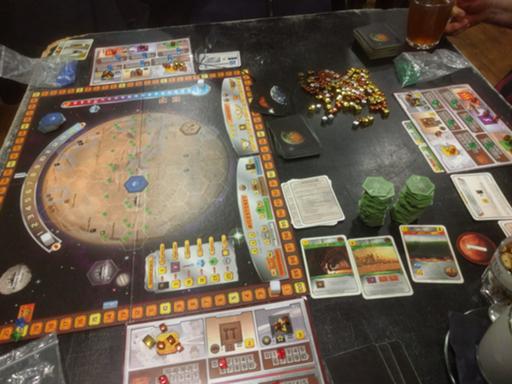
In thematic terms, this ought to be exactly the sort of game I enjoy:
crashing asteroids onto Mars! Flooding Valles Marineris! Turning a
barren rock into somewhere with life on it! And yet I found it a bit
of a let-down.
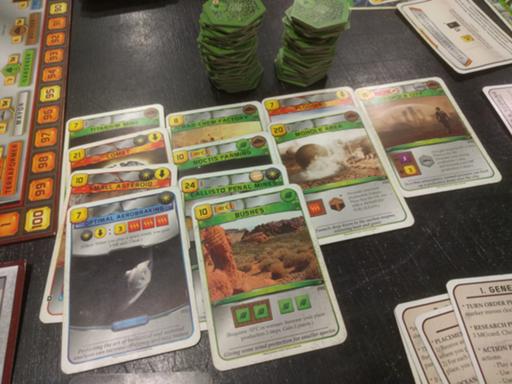
Although "too random" is a cliché of game commentary, I really do
think the problem is the randomness. There's one huge deck of cards
from which everyone draws (and you then decide whether to pay to keep
a card or let it go out of the game), but some of those cards have
prerequisites (for example you can't have birds until the oxygen
percentage is high enough). So if you draw the Birds card early in the
game, you have the choice between spending money for it and holding
onto the card until later (and money can be a bit scarce in the early
game), or discarding it and abandoning any likelihood of seeing that
development at all.
That sort of thing is fair enough as a decision to have to make, but
it happens by chance. Maybe the Birds card will come up late, in which
case you don't have that choice to make; maybe (probably) it will come
up in someone else's hand, in which case you can't play it at all.
Perversely, it's the theme which makes this frustrating: why can't I
introduce birds, or crash a comet on the pole? Because I didn't get
the right card to let me do it.
In this particular game, I happened to draw and play some cards which
boosted my ability to do space developments. Great! Except that, after
that, I saw just one more space development card for the entire rest
of the game.
In other words, you can't pick a strategy; you can't say "I will
concentrate on space" or "this time it's all about animal life",
because that's consigning your fate to the vagaries of shuffling.
Instead, all you can do is plan to be moderately good at everything,
and if there's only one strategy there aren't hard choices to make.
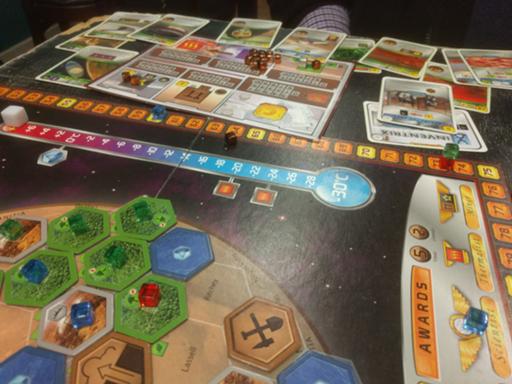
Yes, I did end up winning (on the money tiebreaker), but I didn't feel
I'd earned it by making good decisions.
I suspect it might work better with a different way of getting cards:
perhaps drafting, so that you have the chance to buy cards your
opponents have rejected thus increasing the likelihood of getting
cards to match a strategy, and/or having cards sorted into eras in the
manner of 7 Wonders (or something simpler, such as a deck that gets
shuffled into the main pile only when its prerequisites are met).
Many people love this game. I don't seem to be one of them.
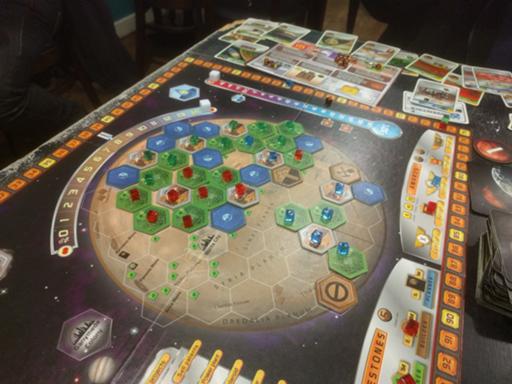
We were a bit weary after that, and finished off with a couple of
games of
Timeline: British History.
The first time we all played perfectly.
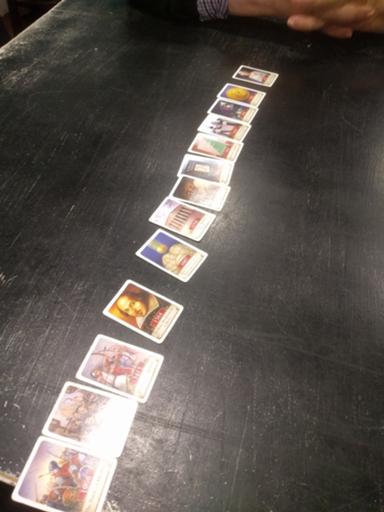
So we left all those cards on the table and dealt out a new set for us
to fit between them, which was a bit more of a challenge. Something to
do again, I think.
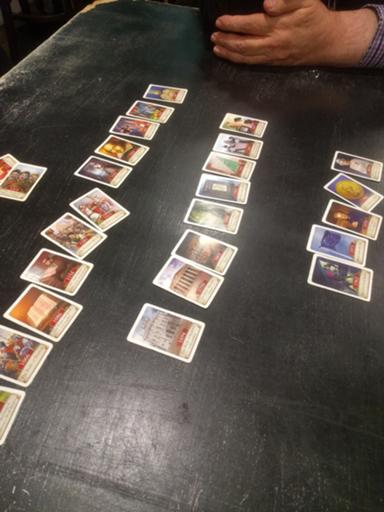
Comments on this post are now closed. If you have particular grounds for adding a late comment, comment on a more recent post quoting the URL of this one.